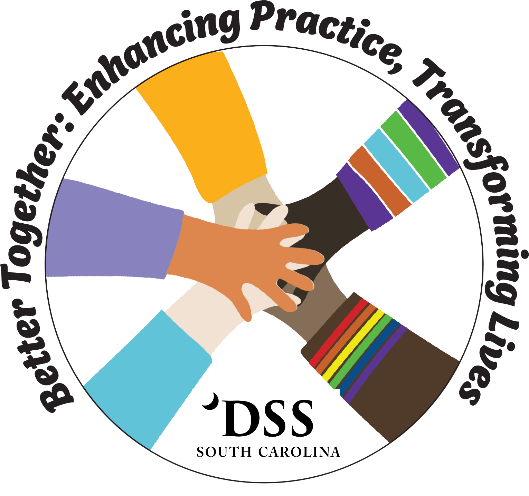How do I maintain my license?
Foster parents are required to renew their foster home license every two years. The renewal process requires DSS to gather updated information on the foster family and the home. The assigned DSS licensing coordinator will assist the family throughout this process.
What kind of training do I need to maintain my license?
Each foster parent is required to complete at least 30 hours of training during a two-year period (15 hours per year), prior to the two-year renewal point. Many free and convenient training opportunities are provided and DSS recommends that each foster parent complete fourteen hours of training each year in order to maintain their foster home license. click here
May I take a foster child in my home and then adopt him or her?
Foster care is temporary care. The goal is to reunite the child with birth parents or relatives whenever possible and child welfare professionals depend on foster parents to assist with this process. If the child becomes available for adoption, foster parents may apply to adopt. The child’s best interest is the primary consideration when selecting a forever family.
What resources are available to make the transition easier for the child?
Many resources are available for foster children and foster parents. Foster parents should communicate needs to foster care case managers as they arise; they may also confer with the coordinators that work with them. Each child in foster care is covered by Medicaid, which provides a primary care physician that is available for consultation and care. The primary care physician will make referrals for support services. Education system professionals may arrange support services within the school. DSS provides support to foster parents, children, and birth families by making necessary referrals to community services as needed.
What is the best way for my biological children to welcome a foster child in our home?
Foster parents should have discussions with their biological children about the expectations of foster families and caring for a foster child prior to taking a foster child into the home. This helps prepare your biological children to be more understanding and accepting of a foster child. It also helps them understand that foster care is not permanent and that they have the opportunity to have a lifelong impact on a child that needs temporary care.
What are the different types of foster homes?
A potential foster parent can be licensed for children at a regular level of care or at a therapeutic level of care. You may become licensed through a private agency with the option of being licensed through DSS if you are interested in fostering children in a critical need area.
Can I foster only a specific age or need child?
Yes, foster parents can express their preferences in regards to the children they feel more comfortable in fostering; however, the agency encourages foster parents to keep an open mind as all of our foster children deserve a safe and loving home.
Are there other foster parents I can contact for advice and support?
The SC Foster Parent Association lists local associations on its website. To access this information, click here. Foster parents are encouraged to get involved in local associations as a source of support and training.
What financial support is available for the child which I am fostering?
Foster parents receive a monthly board rate stipend for each foster child placed in their home. The board rates vary depending on the age of the child and the special needs of the child. Foster children receive medical insurance through Medicaid and a clothing allowance on a quarterly basis. Children age 13 and over are eligible to receive financial supports to assist with education, training, and development of independent living skills. If exceptional needs arise, foster parents should discuss these needs with the foster care case manager to determine if other financial supports are available.
What am I supposed to do when my child has court hearings?
Foster parents are invited to attend court hearings involving each foster child placed in their home. Attendance is encouraged but not mandatory, and allows foster parents to share information about progress with the court.
What is respite care?
If you need a break, ask for it! Respite care is a support offered to foster parents as a temporary “break” in caring for a foster child. Depending on the situation, short-term placement with another licensed foster parent can be arranged for the child.
Is a child's background available to foster parents?
Yes; this information should be shared during the placement selection process. At any point a foster parent has a question, they should contact the foster care case manager that serves the child. Foster parents may learn a lot about the children in their care by participating in court hearings and attending Family Group Conferences. These are both great opportunities to learn more about the foster children and where they came from, to gain insight into the child’s behavior and abilities.

